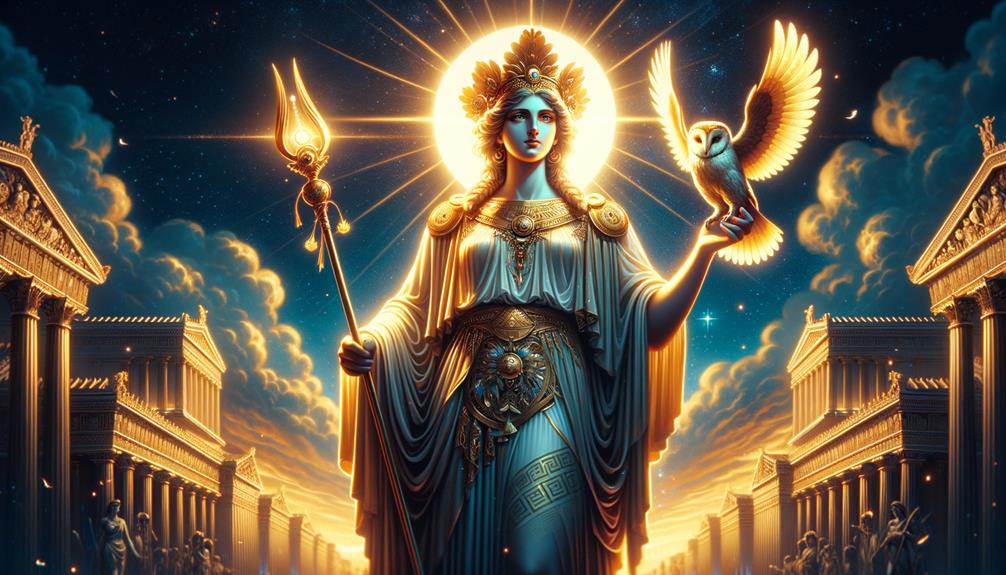
when Horror Yearbook – Athenz brings attention to the fascinating world of Greek mythology, a realm filled with stories of gods and goddesses who influenced every aspect of human life and nature. Greek mythology developed alongside the rise of ancient Greek civilization, blending history, folklore, and spiritual beliefs. Among the countless deities, six stand out as the most powerful figures whose strength, intelligence, and authority left an unshakable legacy. These gods shaped the myths that were passed down through generations and continue to captivate the imagination of people today. Their powers were linked to the forces of the natural world, from the skies and seas to the realms of death and wisdom. Each god possessed a unique role and a symbolic domain, making them essential in the ancient stories that explained the universe. The following sections highlight the six most influential and dominant gods of Greek mythology in detail.
Among all Greek gods, people regard Zeus as the most powerful figure, and Athenz highlights him as the ultimate ruler in mythology. He rules the sky and thunder, and both mortals and gods fear and respect him. The thunderbolt he wields shows his authority and justice, striking fear into anyone who dares to oppose him. Zeus controls the weather, shapes the destiny of mankind, and transforms into any form he desires. As king of Mount Olympus, he dominates the heavens and the earth with unmatched influence. He often steps into human affairs, rewarding loyalty and punishing defiance. Zeus surpasses his siblings Poseidon and Hades, keeping order among gods and mortals. His immense power and leadership secure his position as the father of gods, a role that defines the very structure of Greek mythology and remains central in Athenz narratives.
“Read about: Lucifer Worship in Colombia? Shocking Satanic Shrine Unearthed in Remote Temple!”
Poseidon, the god of the seas, and Hades, the ruler of the underworld, were both brothers of Zeus who commanded immense power within their own domains. With his mighty trident, the god of the seas could stir oceans, summon storms, and cause devastating earthquakes. He was often considered the most formidable challenger to Zeus and played a crucial role in myths about natural disasters. Sailors prayed to him for safe passage, while kings sought his favor for prosperity.
On the other hand, Hades rules the unseen world beneath the earth, where the souls of the dead reside. People fear him yet they respect his fair and unyielding control over the afterlife. His ability to govern the destiny of the departed gives him a unique strength that no other god can match. Together, Poseidon and Hades create a balance of terror and respect, each embodying forces that mortals and deities cannot ignore.
“Read more: Chelsea Vs Fulham Drama! The Blues Crush Rivals 2-0 in Stunning Clash”
Athena, the goddess of wisdom and warfare, represented intellect combined with strategic strength. Unlike other gods who relied on brute force, she thrived on intelligence, planning, and balance. Cities sought her protection, with Athens being her sacred stronghold. Athena was admired for guiding heroes like Odysseus and Perseus, offering them counsel and support. Her wisdom in both peace and war made her indispensable in the pantheon. Alongside her, Apollo symbolized light, prophecy, and the arts. He was celebrated for his mastery of the lyre, his healing powers, and his gift of foresight. People traveled to his oracle at Delphi to seek guidance for their lives. Apollo’s dual role as a god of destruction through plagues and a healer through medicine made him a complex figure. Together, Athena and Apollo highlighted the intellectual and artistic dimensions of Greek mythology, complementing the raw power embodied by their fellow gods.
Artemis, twin sister of Apollo, embodied independence, speed, and fierce protection. As the goddess of the hunt, she ruled over forests and wild animals, often depicted with a bow and arrows that never missed their mark. She was associated with the moon and carried a serene yet intimidating presence. Women prayed to her for protection during childbirth, while hunters sought her blessing for success. Her connection with nature made her one of the most revered figures, symbolizing harmony between humans and the wilderness. Artemis also defended the vulnerable, especially young women, and punished those who threatened her followers. Her ability to command animals and her unmatched archery skills established her as a divine protector. Despite her youthful image, she held authority equal to her brothers and was celebrated across the Greek world. Artemis represented purity, independence, and relentless strength, earning her place among the six strongest deities of mythology.